- Home
- Ward Wagher
Improbable Nazi (Parallel Nazi Book 2) Page 5
Improbable Nazi (Parallel Nazi Book 2) Read online
Page 5
“Oh, they are on the job, Herr Reichschancellor,” Rainer said. “But the Americans talk about the demon Murphy. If he puts in an appearance, then we are in grave trouble.”
“Very well. I need to get to bed,” Schloss said. “Another long day is planned for me for tomorrow.”
“Very well, Sir. Good night.”
“Good night, Karl.”
§ § §
January 7, 1942; 2 AM
Gasthaus Pomerania
Berlin, Germany
“All right, who can tell me what went wrong?” Reinhard Heydrich asked.
“Schlempke got a sniff of us,” Konrad Mussen said. “We were in position and ready to execute. He stepped out onto the street, looked around and immediately went back in. I aborted, and it was a good thing I did. The place was shortly crawling with polizei. Rainer has trained his people well.”
“I think Schlempke must be in league with the Devil,” Wilfred Aniol said. “It was like he could smell us out there.”
“I do not accept that,” Heydrich said. “Someone must have given something away.”
He walked over and eased the edge of a curtain away from the window and scanned the streets below the hotel. This was more of a nervous gesture on his part, and everyone knew it. Heydrich had scurried from one hiding place to the next since the death of his mentor, Heinrich Himmler. The bullet Schloss had fired into the head of the Reichsprotektor had taken Reinhard Heydrich from being Himmler’s heir apparent to a published criminal with a price on his head.
Following Schloss’s putsch, Heydrich had gathered a group of loyal lieutenants in Paris to plan a return to power. So far this had proven far more challenging than Heydrich had estimated. Karl Rainer had thoroughly defanged the SS and had imprisoned hundreds of the more ardent Nazis. He had turned the intelligence apparatus on its head and now gathered information on enemies of the new German government. A government headed up by a murderer and a Jew lover. Heydrich now lived on his anger at the events. He had lost weight and was not sleeping well. The hatred of Schloss and Rainer had become a physical pain, gnawing at his vitals.
Heydrich moved away from the window. “Okay, so we failed tonight. Konrad, you made the correct call. We did not have the resources for a stand-up battle with Schlempke’s people along with the Polizei. The times call for subtlety.”
“Yes, Mein Herr,” Mussen said. “I will discover what it was that set off the guard dogs. We will not make that mistake again.”
“Good, Konrad, good. I believe we should fade for a few weeks and allow the guards to relax again. That schweinhund Schloss cannot hide in the Reichschancellery all the time.”
“We cannot wait too long,” Aniol said. “I fear Schloss will become too popular with the people.”
“A point,” Heydrich said. “You are correct. We do not want to wait too long. Perhaps, though we are making a mistake by going after Schloss directly. I wonder if some of the others in the government would be more… available.”
Mussen nodded. “The other members are more lightly guarded and live in their own homes. With your permission, Herr Colonel, I will investigate along that line.”
“Very well,” Heydrich replied. “But do not fail to check with the rest of us before undertaking action.”
“Of course,” Mussen sniffed. He had a history of impulsiveness and did not like being reminded of it.
“Meanwhile,” Heydrich said, “I think we will relocate our operation to Poznan for the time being. We have friends there, and it will get us out of Berlin until things cool down. Rainer is entirely too efficient for my peace of mind.”
§ § §
January 8, 1942; 10 AM
Lechfield Airbase
Near Augsburg, Germany
Schloss and Goering stood on the tarmac and studied the sleek aircraft from a distance as the pilot mounted the craft. A motor-generator had been towed over next to the craft to provide power to start the engines. An occasional snow flake drifted into view in the twenty degree temperatures.
“So, you are telling me we have a flyable aircraft, Herr Reichsmarshall?” Schloss asked.
“To be honest, Herr Reichschancellor, I have my fingers crossed. Your idea to have two teams competing against one another has worked wonders. What we have here are early prototypes of the BMW engines. They have actually performed well on the test stands. The Junkers engines are still problematical.”
“And our aircraft still has a propeller on the nose.”
“Yes, it does,” Goering chuckled nervously. “Willi told me he believes in wearing a belt and suspenders both.”
Schloss laughed. “That’s very good Hermann. I like the sentiment. What are you anticipating for today’s demonstration?”
“We have completed two test flights already. They were mainly to test the normal operating envelope of the engines. That is what we will be doing today.”
“You surprised me when you told me about the test flights. I did not expect to see something until spring.”
They were interrupted by sound of a reciprocating engine starting. The propeller on the nose of the Me 262 whipped around in jerky movements until it started with a roar and cloud of white smoke. It settled down into a smooth idle. A few minutes later they could hear the high-pitched whine of the turbines as they fired up. They also generated clouds of white smoke in the cold morning air.
“We had some problems with the landing gear,” Goering yelled to Schloss over the sound of the engines. Schloss raised an eyebrow in query.
“It seems the tail was not effective. The pilot tapped the brakes during the takeoff run to get the tail into the air.”
“Why would that be?” Schloss asked.
“I do not pretend to understand the technical aspects here, Herr Schloss,” Goering shouted again. “Willi is planning a design change that will utilize a tricycle landing gear.”
Schloss nodded to indicate he heard the Reichsmarshall. They watched as the sleek looking airplane taxied to the end of the runway and then made its takeoff run. The howl of the propeller was soon subsumed into the scream and roar of the jet engines. The airplane took off at a shallow angle and then began to climb more sharply.
The fighter made several circuits of the airstrip and then lined up for a smooth landing. Goering’s sigh of relief was plainly audible. Schloss grinned at him.
“I am sorry, Herr Reichschancellor. All I have heard over the past month was the risks attendant with this new design. I feared the worst.”
Willy Messerschmitt walked up to them. “Herr Reichschancellor, Herr Reichsmarshall. We are honored at your visit today.”
“How well is the testing proceeding?” Schloss asked.
“Good and bad, both, mein Herren.”
“What?” Goering interjected.
“Good in that the engines are performing well. The airframe is meeting expectations. We have even incorporated the air brakes that the Reichschancellor suggested. Bad in that nothing has failed yet. This early in the process you plan for, and expect failures. In fact, failures are a necessary part of the development process.”
“But the fact that the engines are running well is good news, is it not?” Goering asked.
“Well, yes, Sir. We are very pleased. However, after this flight we will remove the engines and tear them down to study the wear. We have a second set of engines to install.”
“What about the Junkers engines?” Schloss asked.
The aircraft designer looked disgusted. “If the Junkers people could get the things working properly, they have the capability to produce more thrust than the BMWs. But, the engines keep destroying themselves on the test stands. I have refused to mount them in the aircraft at their current state of development.”
“Sounds like a reasonable precaution to me,” Schloss said. “May I study the aircraft up close?”
Messerschmitt spun around to look at the plane. He turned back. “Yes, Herr Reichschancellor. We would welcome your inspection.”
Sch
loss nodded and moved over towards the plane, guards following. He walked around the aircraft, looking at it carefully. Goering studied him carefully.
“You have that look, Herr Reichschancellor.”
Schloss grinned sheepishly. “Yes, I suppose I do.”
Messerschmitt stepped up next to them. “Is there a problem?”
“Only that Herr Schloss looks as though he has an idea.”
“I have sort of been thinking about this since the engineers showed me the internal structure of the engine,” Schloss said. “Have we considered making this front section...” he pointed to the front of the engine.
“The compressor,” Messerschmitt supplied helpfully.
“Yes, yes,” Schloss continued. “Suppose we increase the diameter of the compressor, or add another couple of rows. Then have that air pushed alongside the outside of the engine. Would that give extra power?”
“I need to talk to BMW. They would know if this was feasible.”
Goering was chuckling. “You have done it again, Herr Reichschancellor.”
“And how is that?” Schloss asked.
“You seem to spot things that no one else has noticed.”
“Have we thought of attaching a propeller to this engine?”
“Actually, yes,” Messerschmidt said. “At the moment, the projected life of the engine is so short it was deemed not worth investigating. Perhaps later.”
Schloss nodded. “Trying to move too quickly on things could be dangerous. But, I am very pleased with the progress you all have made on the jet engines.”
And it seems to me that in my former world, the BMW engines were delayed and the Jumos entered production first. I wonder how much of this is the result of my meddling in this world’s history.
Schloss again looked at the sleek aircraft and nodded in satisfaction. In his original time, the Me262 was considered the foremost fighter aircraft of the Second World War. It was only late in the 1940’s that anyone had an airplane that matched this one’s performance. Schloss suspected that with further development, the Messerschmitt would perform even better.
CHAPTER SEVEN
January 8, 1942; 8 AM
The White House
Washington, DC
Henry A. Wallace was starting the third day of his presidency. This morning was his first in the Oval Office. He glanced out the window at the snow flurries meandering out of the sky over the city. He wished his life was as peaceful. On the other hand, he had a job to do. He owed it to Franklin Roosevelt to do the job as well as he was able. Franklin Roosevelt had been his friend.
Wallace was impeccably turned out in a gray flannel suit. His tie was knotted precisely, and his shoes were buffed to a high sheen. He sat in the most important chair in the country, probably the world, and he felt he should dress in a way that respected the chair, the desk, the office. And, The Office. He had recently drifted into the Episcopal Church after a decade of experimentation with various eastern religions. He was not sure he subscribed to the Episcopal liturgy, but the ritual was comforting. Perhaps the first thing that occurred to him when he received the phone call three days previously was that the Almighty had prepared him for this job.
Henry Wallace was a successful businessman. He had parlayed his wife’s inheritance into an investment that resulted in the Hibred Seed company. Not only had his company provided hybrid seed to farmers across the country, but it had also made him a wealthy man. Appointed as the Secretary of Agriculture by newly elected President Roosevelt, he had also been successful.
He was less successful in politics. The conservative Democrats hated his progressive ideas, though there was little they could do with Roosevelt protecting him. He was a Republican when Roosevelt appointed him to the cabinet, although he had later joined the Democratic Party. His selection as the vice-presidential candidate in 1940 was controversial, although Roosevelt had rammed it through. And now, a year after the inauguration, he was sitting in Roosevelt’s chair. It was humbling.
With a slight knock on the door, Wallace’s secretary eased into the Oval Office. She was still intimidated by the place and by her boss’s new stature. However, he did not feel he could realistically keep Roosevelt’s secretary, even with her extensive knowledge of the place. In spite of his enormous respect for Franklin Roosevelt, he could not abide retaining the woman who had been in Roosevelt’s bed when he died, and she was not married to him.
“Senator Truman is here for his appointment, Mr. President.”
With a start, Wallace realized he had been woolgathering for the past twenty minutes. He had no time for that, and had to get on with the job.
“Show him in, please.”
He studied the senator from Missouri as the little man walked into the room. The word that came to mind was dapper. Wallace believed in dressing well, but in this case, the clothes made the man. Whenever he had encountered Harry Truman, the man’s clothes seemed to be a natural extension of his personality.
“Senator, it is good to see you again.”
Truman shook his hand and almost bowed. “Mr. President, it is an honor. Like everyone else, I was shocked at the events of the past week. If I have to say it, you have my full support.”
“Thank you, Senator.” He stretched his arm towards the sofas that formed the conversational nook. “Please, have a seat. Would you like some coffee, or perhaps something a little stronger?”
“Some coffee would be very nice,” Truman said with a grin. “Bess is unhappy with me if I start my drinking before five o’clock.”
“Indeed,” Wallace chuckled.
He walked over to a sideboard where a thermos flask of coffee awaited his ministrations. Apparently, a White House steward was tasked with remaining on station to supply beverages to the guests and to the president. This made him uncomfortable, so he had dispatched the steward to find more productive tasks. He poured two cups and walked back over to hand a cup to Truman.
“To be served by the President, no less,” Truman said. “I am honored.”
Wallace looked sharply at the senator and determined that there was no malice in the statement. He waved his arm in a throwing-away motion.
“I believe you and I come from similar backgrounds,” Wallace said. “We both had to kick the dirt clods off our shoes before we walked in here.”
“I have never been in here before,” Truman commented. “A lot of history in this place.”
“This is actually my first day in the office. When I walked in the door, I felt like I needed to kneel before the almighty. This place does that to you.”
“Kind of amazing, when you stop to think about it. A successful businessman and a politician meet in what is the most important office in the world. It is humbling.”
“That is exactly the word the came to my mind a little while ago,” Wallace said. “I hope I never lose that sense of perspective.”
They both sipped on the coffee and seemed lost in thought for a few moments. Then Wallace set his cup down and cleared his throat.
“Yes, well, I suppose we should get down to business. There were a couple of matters I wanted to bring to your attention.”
“Yes, Mr. President?”
“First deals with your Truman Commission. You have been doing excellent work in rooting out corruption and waste in the war industries. This is important. We are in serious trouble in the Pacific and on the West Coast. It is critical that every single dollar the government spends on armaments is used wisely and correctly.”
“I have had some push-back from people who don’t believe I should single out fellow Democrats for abusing their positions,” Truman said. There was a look of challenge in his face.
You really are the rascal that you are reputed to be, Wallace thought. In spite of your obvious awe of the office, you are not afraid to challenge me. I think I like you.
“I think both parties have their fair share of crooks and scalawags, Senator. I have a tendency not to temper my speech and to say what I really think. L
et me say that you have my one-hundred percent backing to track down malfeasance wherever you find it.”
“Everywhere, Mr. President?”
“You are speaking of the White House, Senator?”
“That, and the top layers of the military, among others.”
The president stared at the senator and wondered what he had uncovered.
“If you uncover wrong-doing, Senator, it must be stopped. If it occurs in the top leaders of the military or the White House, it still must be stopped. However, it will likely have to be handled quietly. Is there something I need to know about?”
Truman looked at the president and wondered how far he could trust him. Henry Wallace was not popular with the Democrats, and he was a wealthy progressive to boot. Truman mentally flipped a coin.
“Very well, Mr. President. General Marshall, Secretary Stimson, James Conant and some others have formed the S-1 Committee to control a confidential military project. They are beginning to use large amounts of off-budget funding. Now, I recognize the military necessity for secret projects and support them. However, I hold top-secret clearance and they have told me frankly to butt out. This concerns me.”
Wallace drummed his fingers on the arm of the sofa and wondered how to answer Truman. The senator noticed his action and raised an eyebrow. Of all the tools we have in our arsenal, the president thought, the honest man is the sharpest and most dangerous.
Wallace took a deep breath. “Very well, Senator, there is top secret and then there are levels above that. And, no, I am not saying this to hide something from you. Let me tell you something you are probably well aware of: while we are in a desperate situation with the Japanese, we are not worried about ultimately losing to them. If we even tried to sue for peace, the American people would probably string us up.”
“The policy has not been officially formulated,” Truman commented, “but my read is that unconditional surrender will be our only terms where the Japanese are concerned.”

 The Mountains of Montora (The Chronicles of Montora Book 1)
The Mountains of Montora (The Chronicles of Montora Book 1)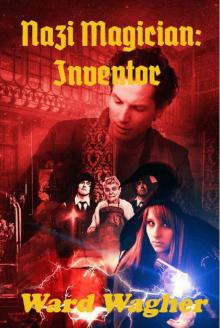 Nazi Magician: Inventor
Nazi Magician: Inventor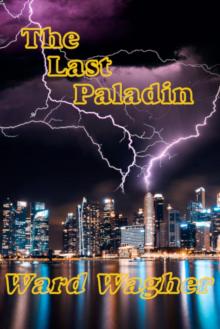 The Last Paladin
The Last Paladin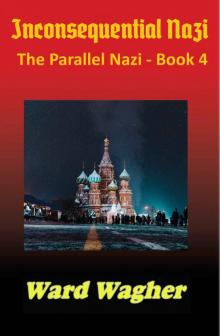 Inconsequential Nazi
Inconsequential Nazi Impossible Nazi
Impossible Nazi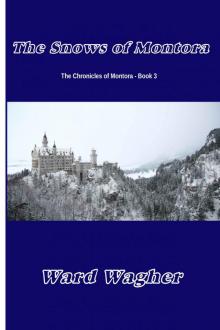 The Snows of Montora (The Chronicles of Montora Book 3)
The Snows of Montora (The Chronicles of Montora Book 3)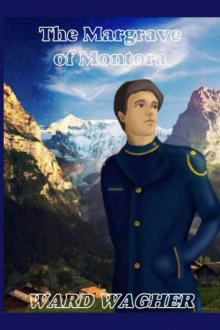 The Margrave of Montora (The Chronicles of Montora Book 2)
The Margrave of Montora (The Chronicles of Montora Book 2) Gravity Rising (The Parallel Multiverse Book 2)
Gravity Rising (The Parallel Multiverse Book 2) ruBracks, Nazis, the Death of the Universe & Everything (The Parallel-Multiverse Book 1)
ruBracks, Nazis, the Death of the Universe & Everything (The Parallel-Multiverse Book 1)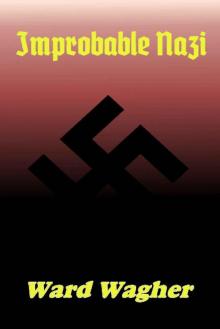 Improbable Nazi (Parallel Nazi Book 2)
Improbable Nazi (Parallel Nazi Book 2)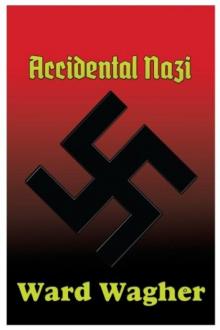 Accidental Nazi
Accidental Nazi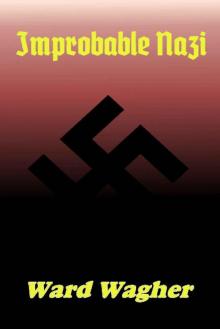 Improbable Nazi
Improbable Nazi